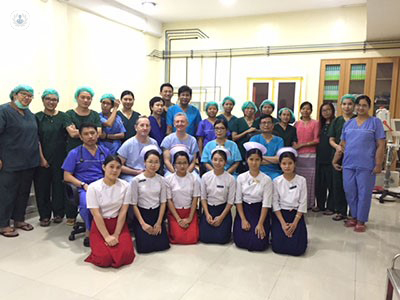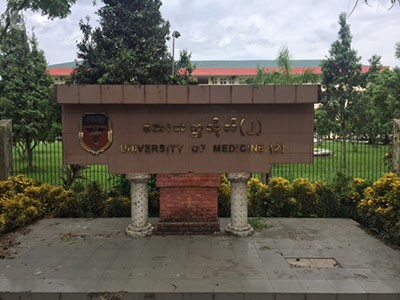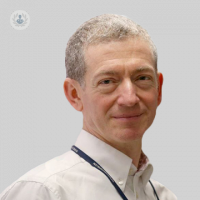Cardiologist Dr Andrew Deaner's letter on mission Burma (part two)
Written by:In his previous extract, distinguished London cardiologist Dr Deaner gave a fascinating insight into his trip to a small town in Burma, where he examined patients who, in some cases, had never seen a cardiologist. Armed with his stethoscope, Dr Deaner came to realise that there was not a single cardiologist in a state of two million people.
Dr Deaner lived up to his promise in his last letter and returned to Thanbyuzyat, Myanmar eager to see as many patients, who do not have access to healthcare, as possible. Here, he shares an extract on his trip where he examined more than 250 locals with heart problems in five days…

“Six months after my original visit I’ve just returned from a second working trip to Myanmar. On this occasion, I’d committed to five days of clinics in the small town of Thanbyuzyat and four days of interventional cardiology in the capital, Yangon.
Based on previous experience I’d decided to take a cardiac physiologist with me to do the echoes, thus freeing me up to see more patients. This worked a treat. Over five days I saw more than 250 patients and Katherine Hawes, my physiologist colleague, scanned 168 of them.
The local physicians had done an effective job triaging patients so that the proportion with significant pathology was higher than at my previous visit. As before, I saw many with advanced valvular heart disease as well as some with congenital heart disease and many with coronary disease. I was again frustrated by the failure to anticoagulate patients with severe mitral stenosis, even if in atrial fibrillation. Several had already had strokes.
The problem is the cost of regular INR checks; my plan is to raise funds to purchase a handheld ‘Coagulochek’ machine plus a regular supply of reagent strips. In such a simple way we can save lives.
Access to definitive treatment, whether it be percutaneous intervention or open heart surgery is mainly restricted to the few who can afford to pay. To try to facilitate greater access to treatment for the poor, I had made contact with the cardiac units in Yangon. I arranged to spend four days in the cardiac catheter lab at North Okkalapa General Hospital (NOGH), part of University Medical School 2.

I was able to arrange for patients requiring coronary angiography, and possible angioplasty, to travel up to this unit where treatment is free of charge. My colleague from Barts, Dr Mike Mullen who is an accomplished structural interventionist, flew in for two days and we were able to perform the unit’s first six Mitral Balloon Valvuloplasties, whilst teaching the local consultants the technique.
Teaching techniques is key to developing sustainable local services, just flying in, doing a number of cases and then flying out is not appropriate. I dealt with ten coronary cases, including seven coronary interventions. Fortunately, all went well. We hope this is the beginning of a long association between Barts and NOGH.
Furthermore, this could be the beginning of an effective cardiac network within Myanmar where patients away from the main cardiac centres are seen locally for initial assessment prior to being sent to Yangon for intervention.”


